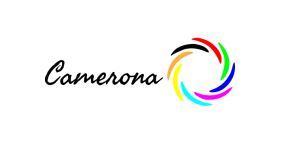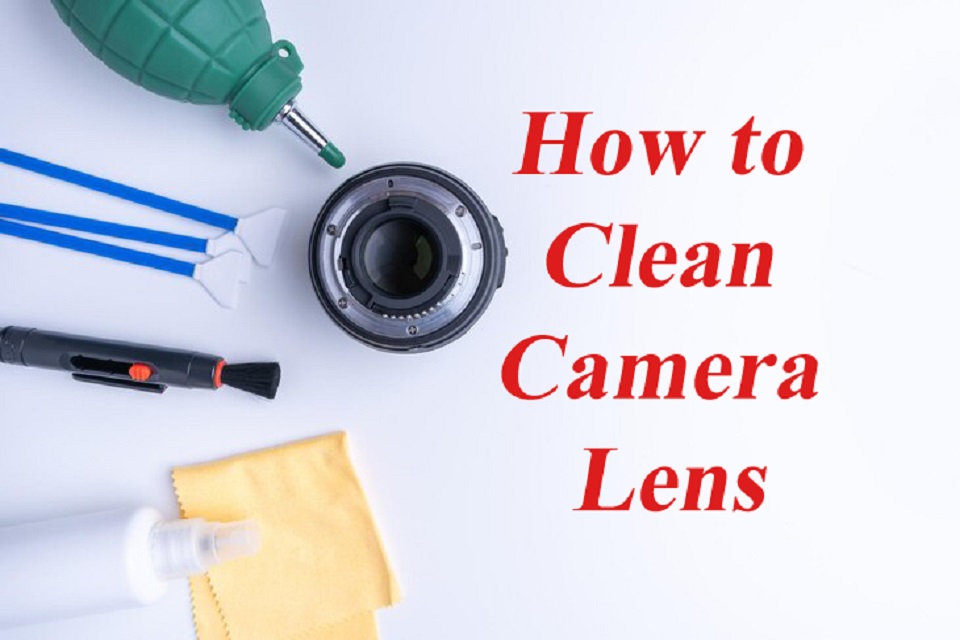
Camera Lens Cleaning Kit: A Comprehensive Guide to Keeping Your Lenses Pristine
Introduction
In the world of photography, having clean lenses is paramount to capturing sharp and stunning images. Dust, smudges, and fingerprints on your camera lenses can significantly degrade image quality, leading to disappointing results. A camera lens cleaning kit is an essential tool for every photographer, whether you are a professional or an enthusiast. This article will guide you through the importance of keeping your camera lenses clean and the key components of a high-quality camera lens cleaning kit.
Why Clean Camera Lenses Matter
1. Enhancing Image Quality
Dirty lenses can create blurred spots, and flares, and reduce contrast, resulting in subpar image quality. To ensure your photos are sharp and vivid, regularly cleaning your camera lenses is vital.
2. Protecting Your Investment
Camera lenses are expensive, and maintaining them properly can extend their lifespan. Regular cleaning can prevent dust and debris from settling on the lens surface and causing scratches or damage.
3. Minimizing Flare and Ghosting
A clean lens reduces the chances of flares and ghosting, which can occur when light bounces off dirt particles on the lens. These optical aberrations can negatively impact the overall composition of your photographs.
The Essential Components of a Camera Lens Cleaning Kit
Microfiber Cleaning Cloths
Microfiber cleaning cloths are an essential tool in any photographer’s arsenal, revered for their unmatched ability to keep camera lenses pristine. These soft and delicate cloths are specifically designed to clean delicate surfaces without causing any scratches or damage. Let’s delve into the details of why microfiber cleaning cloths are the preferred choice for cleaning camera lenses:
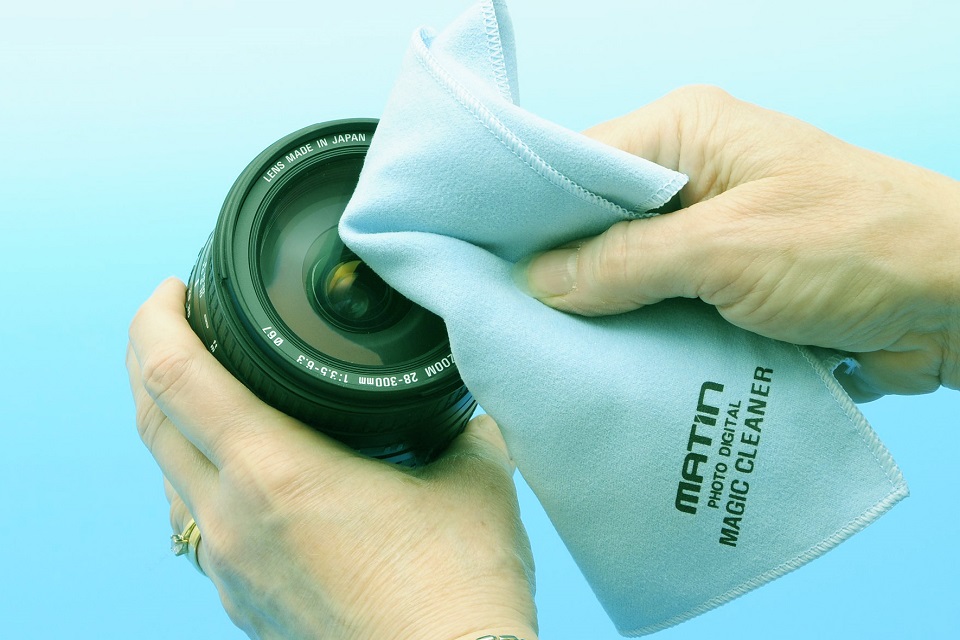
1. Unparalleled Softness:
Microfiber cleaning cloths are made from an ultra-fine synthetic material, which gives them incredible softness. Unlike regular cloths that may have rough fibers, microfiber cloths are gentle and non-abrasive. This ensures that the delicate coatings on camera lenses remain unharmed during the cleaning process.
2. Exceptional Absorption:
One of the remarkable features of microfiber cleaning cloths is their exceptional absorption capabilities. The fibers in these cloths have a high surface area, allowing them to absorb moisture and oils effectively. As a result, they effortlessly lift and trap dust, fingerprints, and smudges from the lens surface, leaving it clean and clear.
3. Lint-Free Performance:
Traditional cleaning cloths often leave behind lint or fibers, making the cleaning process counterproductive. Microfiber cleaning cloths, on the other hand, are lint-free, ensuring a streak-free and spotless finish on your camera lenses.
4. Versatility:
Microfiber cleaning cloths aren’t just limited to camera lenses. They are versatile tools that can be used to clean various optical devices, such as eyeglasses, binoculars, and even computer screens. Their soft and non-abrasive nature makes them suitable for delicate surfaces.
5. Reusability and Longevity:
Investing in a microfiber cleaning cloth is a wise choice, as they are highly durable and reusable. With proper care and regular washing, these clothes can last for a long time, providing consistent and reliable cleaning performance.
Lens Cleaning Solution
A lens cleaning solution is a vital component of any camera lens cleaning kit. It is specially formulated to effectively and safely remove stubborn stains, smudges, and dirt from the delicate surfaces of camera lenses. Let’s explore the key details and benefits of using a high-quality lens cleaning solution:
1. Non-Abrasive Formulation:
Lens cleaning solutions are designed with a non-abrasive formula, ensuring they do not damage the lens coatings or scratch the glass surface. This gentle yet effective solution is essential for maintaining the integrity and optical performance of your camera lenses.
2. Removing Stubborn Contaminants:
Camera lenses can attract various contaminants, such as fingerprints, oils, dust, and water spots, which can be challenging to remove with just a dry cloth. A lens cleaning solution is specifically engineered to dissolve and lift these stubborn contaminants, leaving the lens spotless.
3. Streak-Free Cleaning:
One of the most significant advantages of using a lens cleaning solution is its ability to provide streak-free cleaning. When used with a microfiber cleaning cloth, the solution ensures that no residue or streaks are left behind, resulting in clear and unobstructed optics.
4. Fast-Drying Properties:
Lens cleaning solutions often have fast-drying properties, ensuring that the lens surface doesn’t remain wet for an extended period. This quick evaporation prevents any potential damage that prolonged exposure to liquid might cause.
5. Safe for Coated Lenses:
Many modern camera lenses come with delicate multi-coatings that enhance their optical performance. A high-quality lens cleaning solution is specifically formulated to be safe for these coated lenses, preserving their effectiveness and longevity.
6. Versatility:
Lens cleaning solutions are not only limited to camera lenses; they can also be used to clean other optical devices, such as binoculars, telescopes, and eyeglasses. Their versatility makes them a valuable addition to any photographer’s cleaning kit.
Air Blower
An air blower is an excellent tool for removing loose dust and debris from the lens without touching it physically, reducing the risk of scratches.
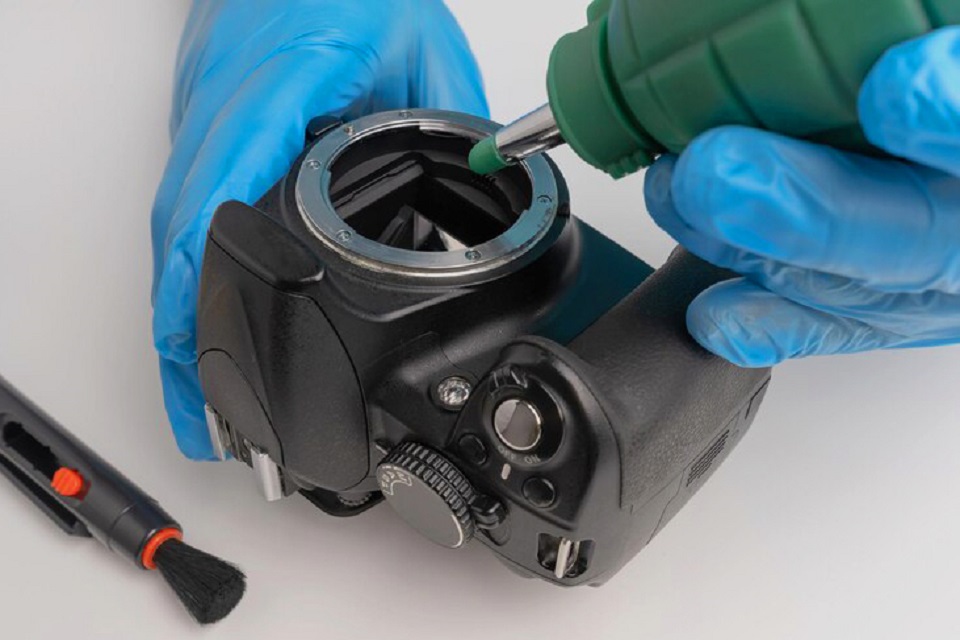
Lens Cleaning Pen
A lens cleaning pen with a soft brush on one end and a microfiber pad on the other can help you target small, delicate areas with precision.
Sensor Cleaning Swabs
For interchangeable lens cameras, sensor cleaning swabs are necessary to keep the camera’s sensor free from dust and particles.
Lens Cleaning Tissues
These disposable tissues are handy for quick cleaning on the go and can be used with a small amount of lens cleaning solution.
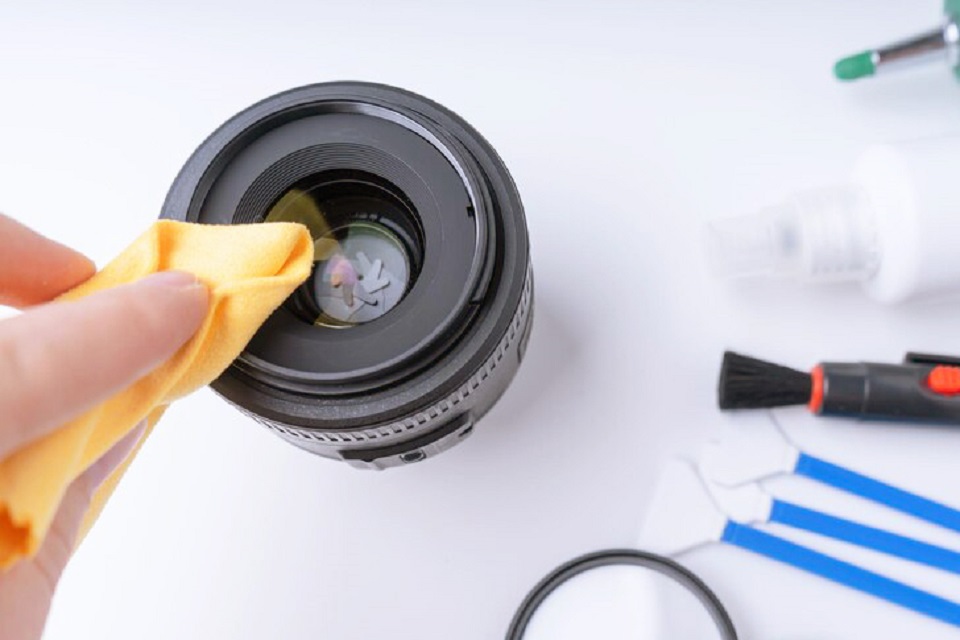
How to Clean Your Camera Lenses Properly
Step 1 – Gather Your Cleaning Kit
Before you start cleaning, assemble all the components of your camera lens cleaning kit.
Step 2 – Use the Air Blower
Gently use the air blower to remove any loose dust or debris from the lens surface.
Step 3 – Apply the Lens Cleaning Solution
Put a small amount of lens cleaning solution on a microfiber cleaning cloth and apply it to the lens in a circular motion.
Step 4 – Use the Lens Cleaning Pen
For smudges and fingerprints, use the lens cleaning pen’s brush or microfiber pad to clean the affected areas.
Step 5 – Clean the Lens Cap and Filters
Don’t forget to clean the lens cap and any filters you have attached to your lens.
Step 6 – Inspect the Lens
Inspect the lens under a bright light to ensure it’s free from any remaining dirt or streaks.
Step 7 – Cleaning the Camera Sensor (For Interchangeable Lens Cameras)
If you own an interchangeable lens camera, use sensor cleaning swabs to keep the sensor clean.
Conclusion
A camera lens cleaning kit is an indispensable companion for photographers who want to capture stunning, crystal-clear images. Regularly cleaning your camera lenses not only enhances image quality but also protects your valuable investment. Remember to handle your lenses with care and use the appropriate tools for cleaning to avoid causing any damage.
FAQs
1. How often should I clean my camera lenses?
Cleaning your camera lenses should be done whenever you notice smudges, dust, or dirt affecting your images. For regular use, cleaning them every few weeks is recommended.
2. Can I use regular cleaning cloths to clean my camera lenses?
It is not recommended to use regular cleaning cloths as they may scratch the lens surface. Always use microfiber cleaning cloths designed for camera lenses.
3. Is it safe to clean the camera sensor myself?
Cleaning the camera sensor requires careful handling and the right tools. If you’re not confident, it’s best to have it cleaned professionally.
4. Can I use alcohol-based solutions for cleaning my camera lenses?
No, alcohol-based solutions can damage lens coatings. Stick to non-abrasive lens cleaning solutions specifically designed for camera lenses.
5. Should I clean the lens contacts as well?
Yes, clean lens contacts using a soft, dry cloth to maintain proper communication between the lens and camera body.
